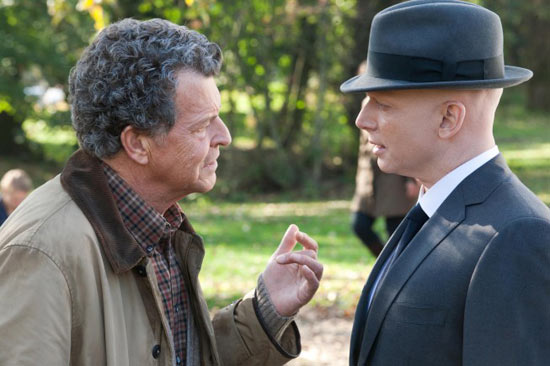The Faith of Fringe
I find myself in a strange situation. One of my favorite shows on television is a show I gave up on halfway through the first season. Fringe.
 I gave up on the show halfway through the first season because I felt the show was meandering, strange, and sometimes gross. It is still sometimes those things, but it is so much more too.
I gave up on the show halfway through the first season because I felt the show was meandering, strange, and sometimes gross. It is still sometimes those things, but it is so much more too.
I gave up on Fringe, now in its third season, before the overall “meta narrative” became evident. Fair warning, spoilers ahead.
The storyline goes something like this. There is a special division of the FBI named the “Fringe” division that investigates strange occurrences somewhat like the X-files. However, as we learn throughout the show that most of the strange occurrences relate in some way to a parallel universe, a parallel universe colliding with our own.
We learn in season 2 that our main character Walter, a brilliant but seemingly drug addled scientist, is responsible for the collision of universes that began in 1985. In that year, Walter lost his son Peter to disease, a disease that Walter had worked tirelessly but unsuccessfully to cure. Previously, Walter had invented a window into the alternate universe that allowed him to see what was happening on the other side. After the death of his son, he continuously watched his alternate universe alter ego (Walternate) search for a cure to save his son. And he did! But….
But just as the cure became apparent, Walternate was distracted by a strange visitor in his lab (the observer) and missed the finding.
So Walter made the decision to go into the alternate universe to save the boy, his son who is not his son.
Ok. This is where the show got me hooked.
As Walter made preparations to enter the alternate universe, his assistant, an explicitly Christian character, warned him of the dangers to both universes if he did it and begged him not to. Walter, filled with pride and rage, railed against his assistant and the God in which she believes. And the crossed over to save “his son” and brought him back to this universe to raise as his own.
In other words, while God so loved the world he sent his only Son to die, Walter so loved his son that the whole world might die to save him. Walter did the exact opposite of what God did.
But then, in an amazing spark of awareness, Walter began to realize what he had become and was becoming. He admits later that something began to spark the flame of belief in a God he had previously so venomously rejected; he knew then that he needed forgiveness.
In last weeks episode, we began the story on the other end of the bible. The mysterious observers constructed a scenario to see if Walter has really changed from the man he used to be. The scenario is a reconstruction of the story of Abraham and Isaac with the mysterious observer in the role of God. The observer convinces Walter that in order to save the world, that he must save the life of a seemingly inconsequential woman. But in order to do so, he must be willing to let his son die.
Faced with the choice, Walter decides to let his son die if that is his fate. In doing so, Walter like Abraham is willing to sacrifice his son if that is what God wants, and like God, the Observer spares the son. Walter has changed. He is now Abraham and no longer the prideful serpent.
While Fringe is not an explicitly religious show, it deals with themes and elements that naturally raise questions about our very natures. It does this in much the same way that the show “Lost” did during its run, which should come as no surprise since JJ Abrams produced both shows.
All this coupled with some top-notch acting has made “Fringe” one of my favorite shows on television.












